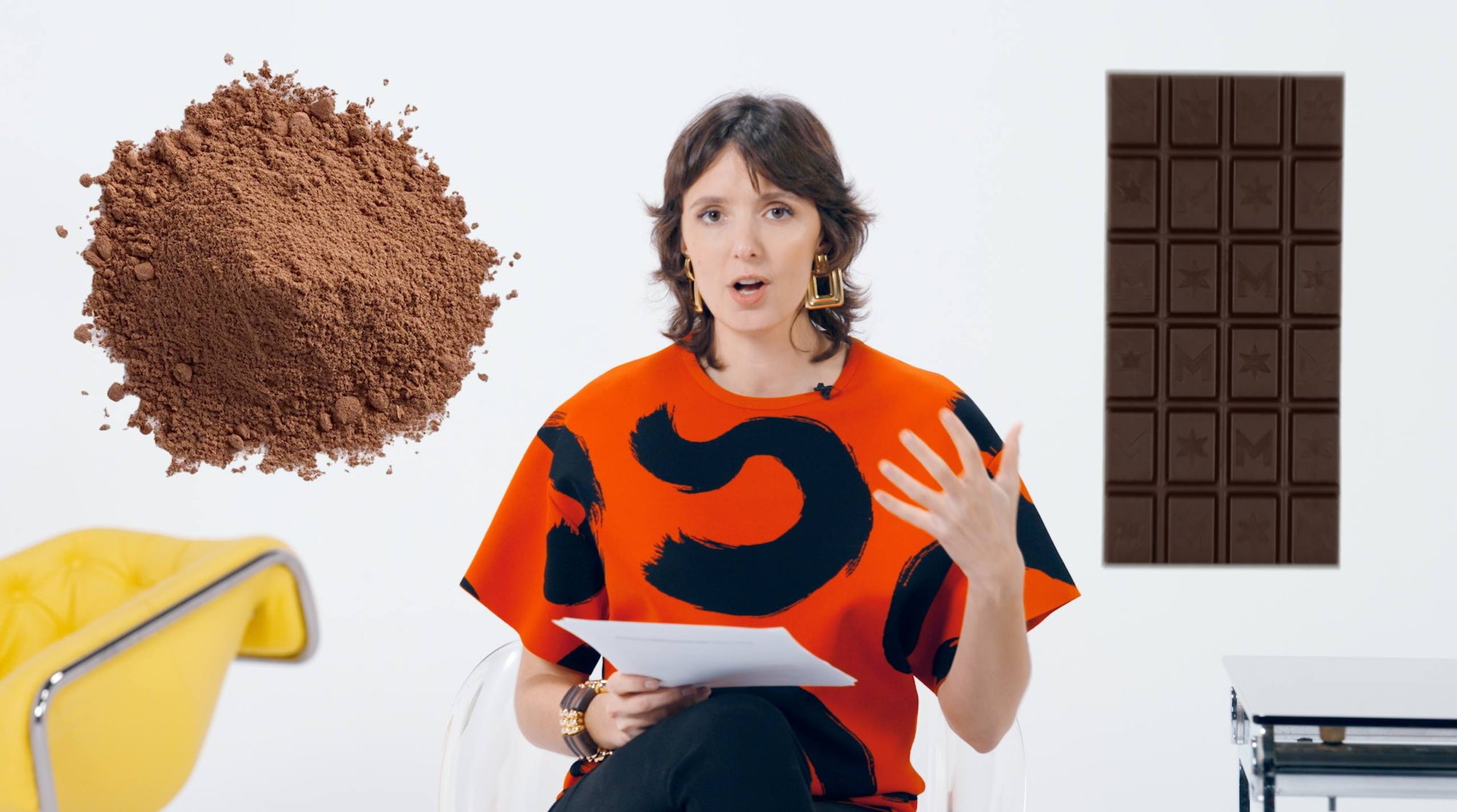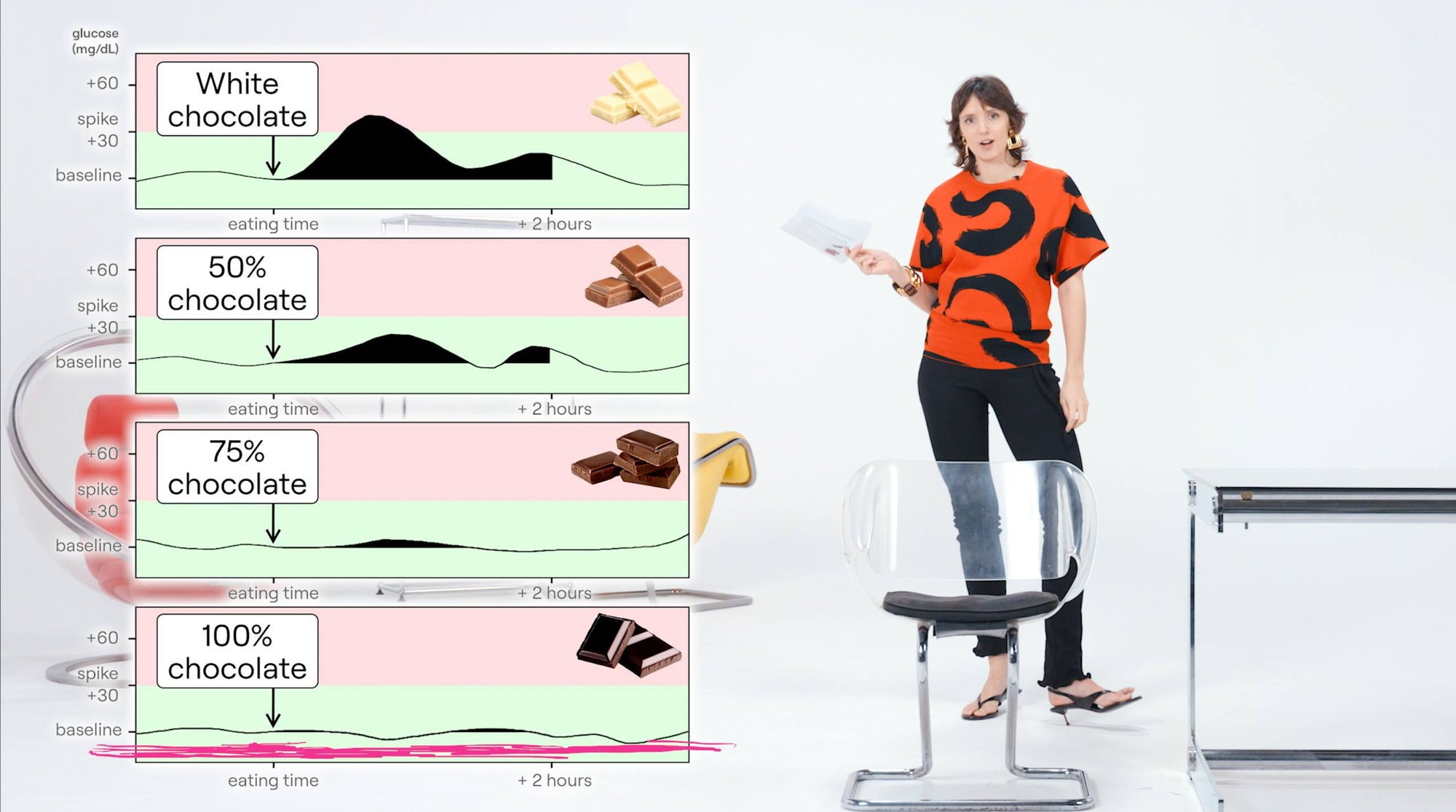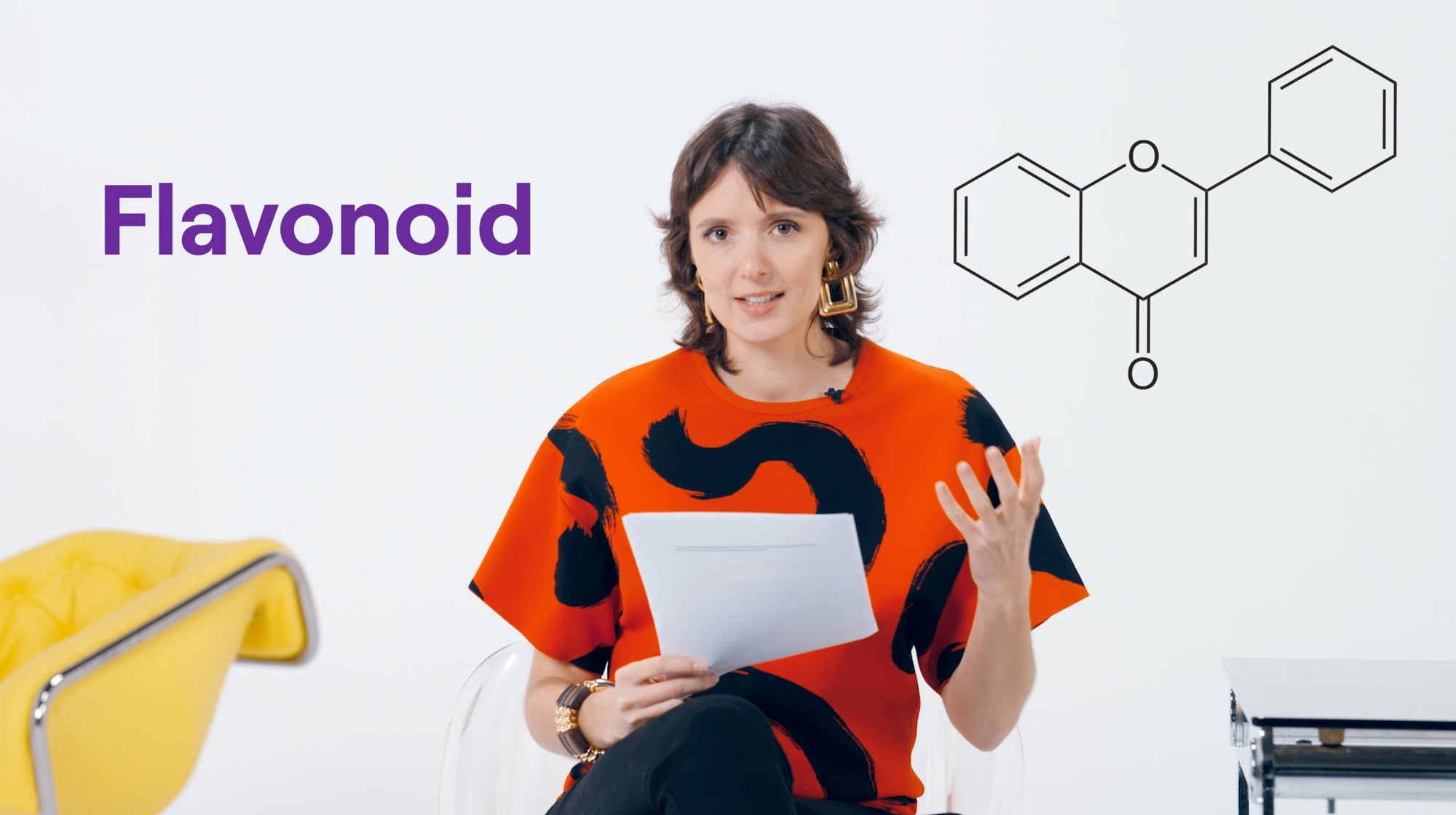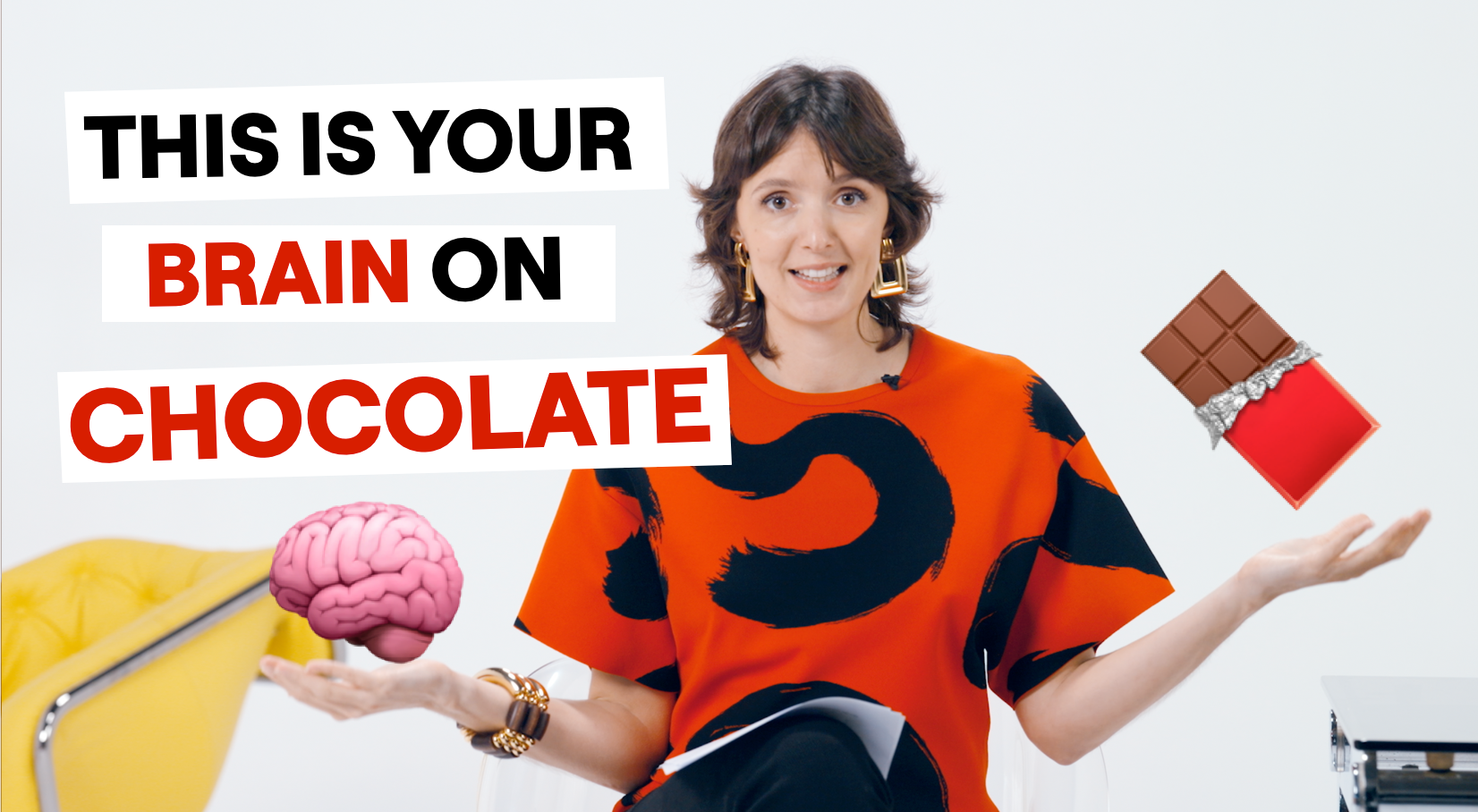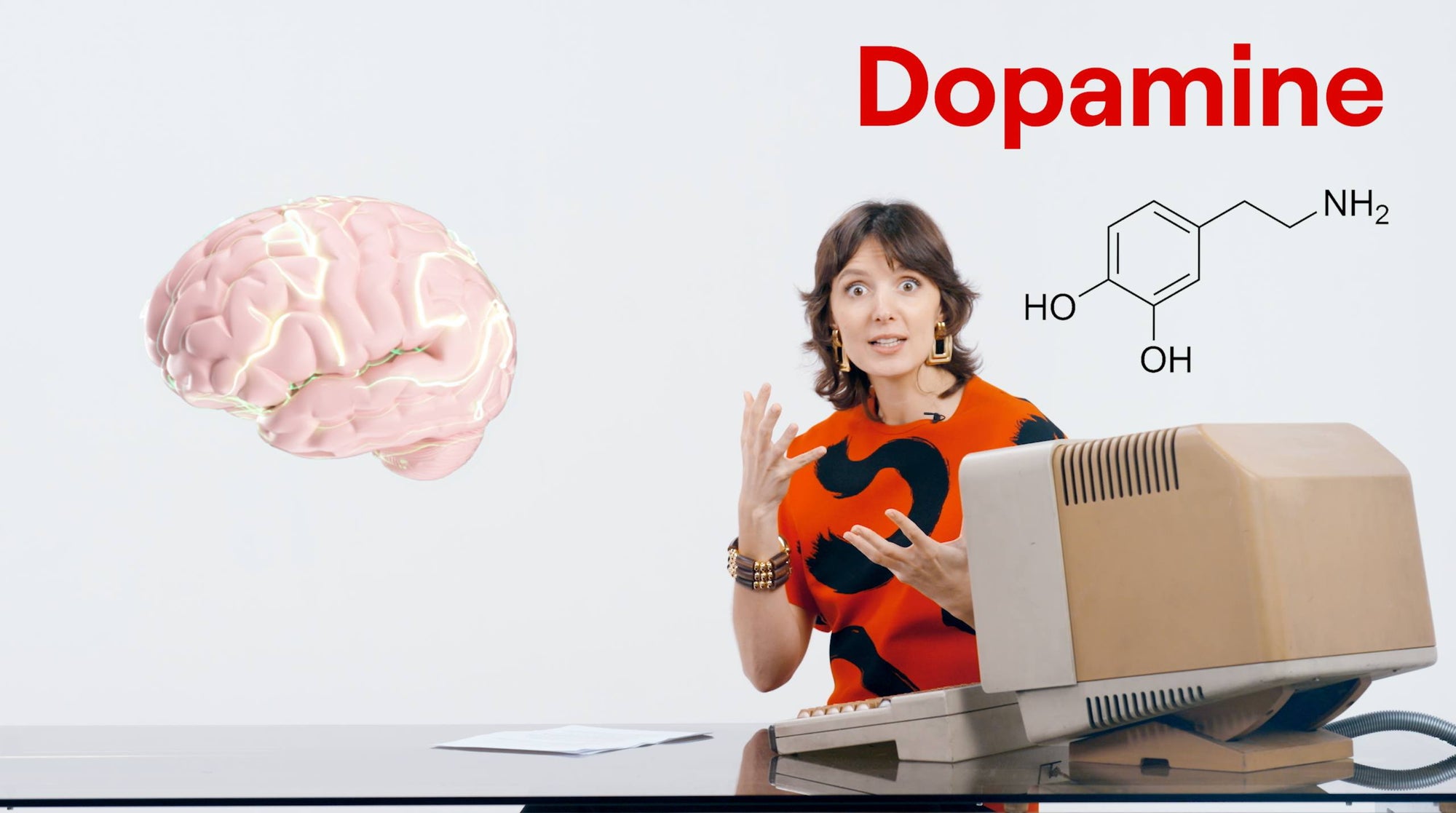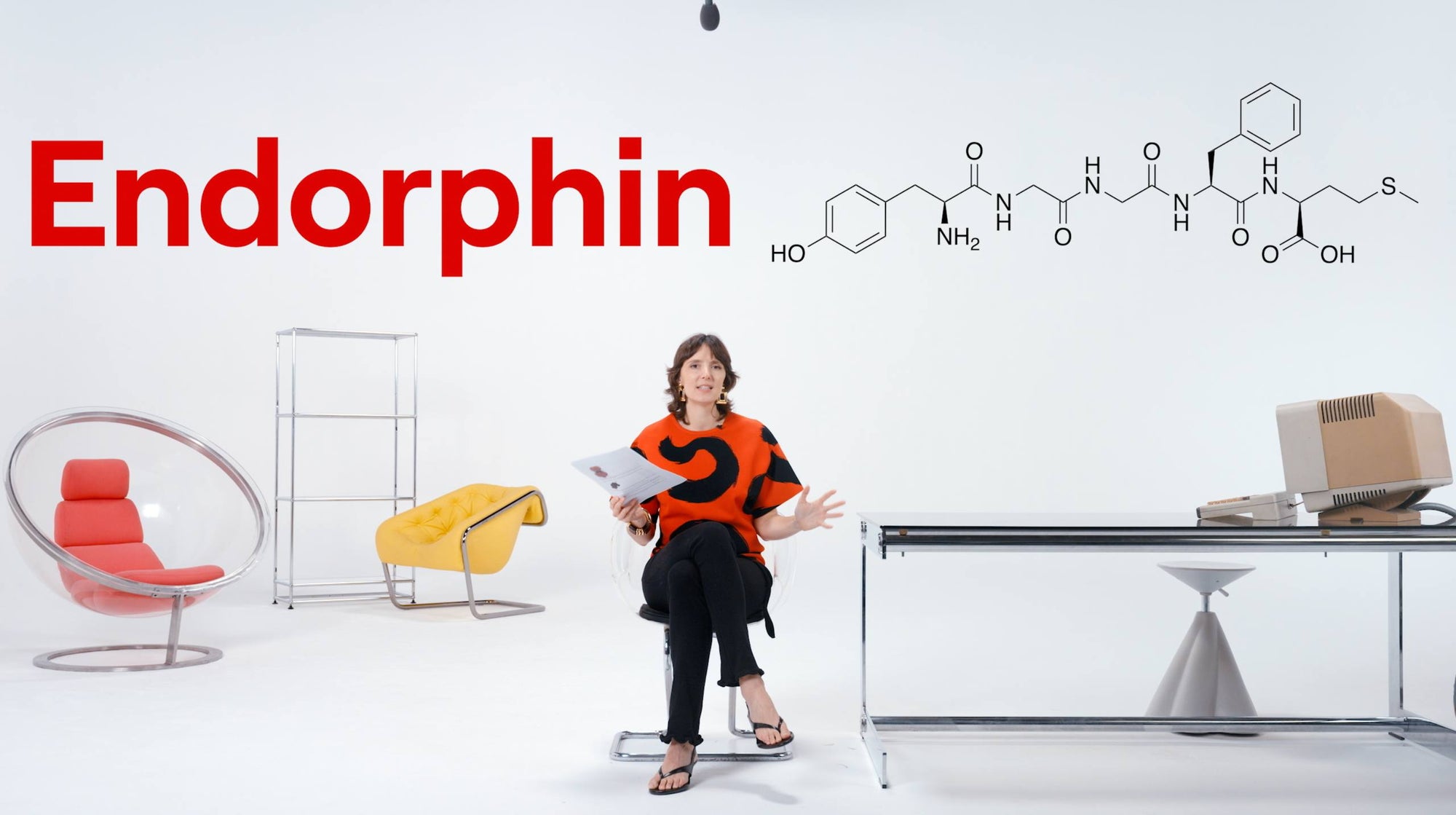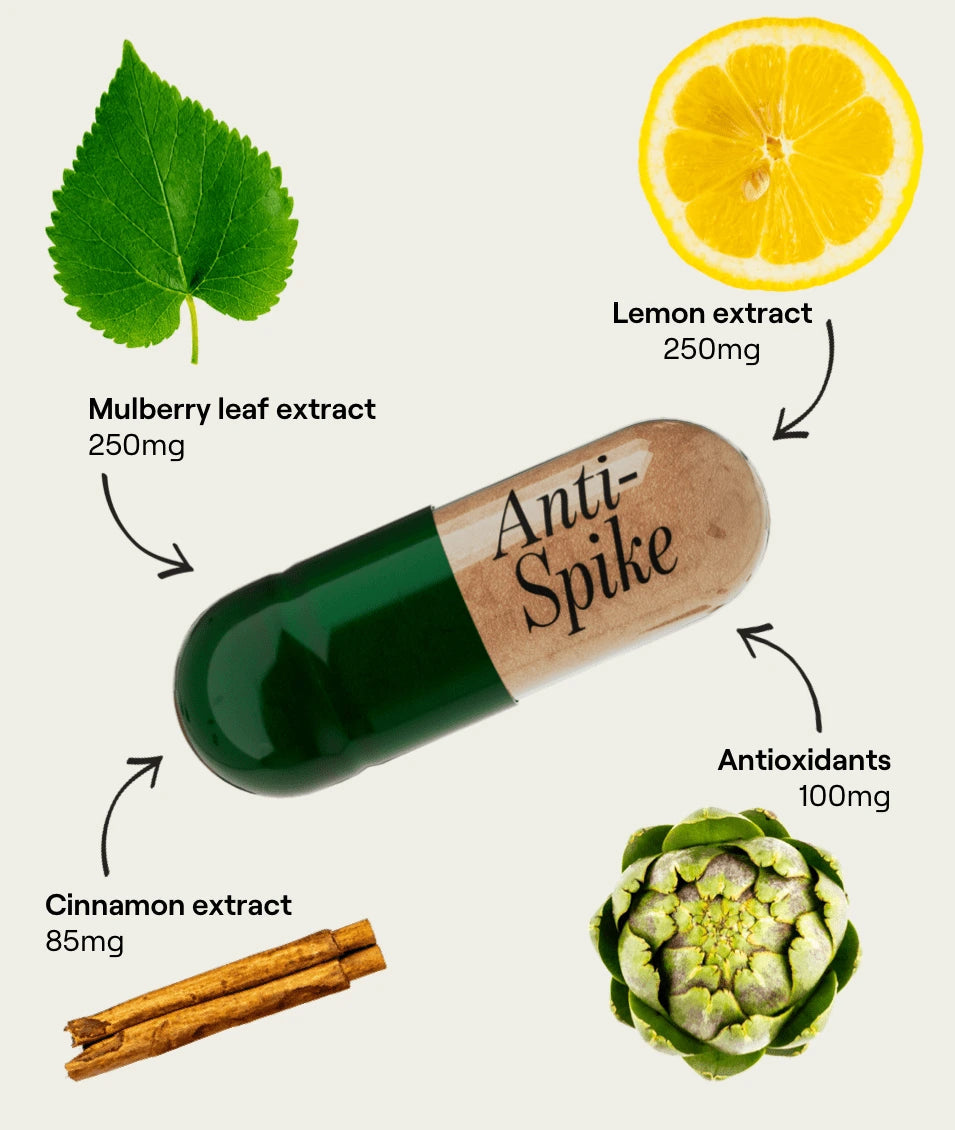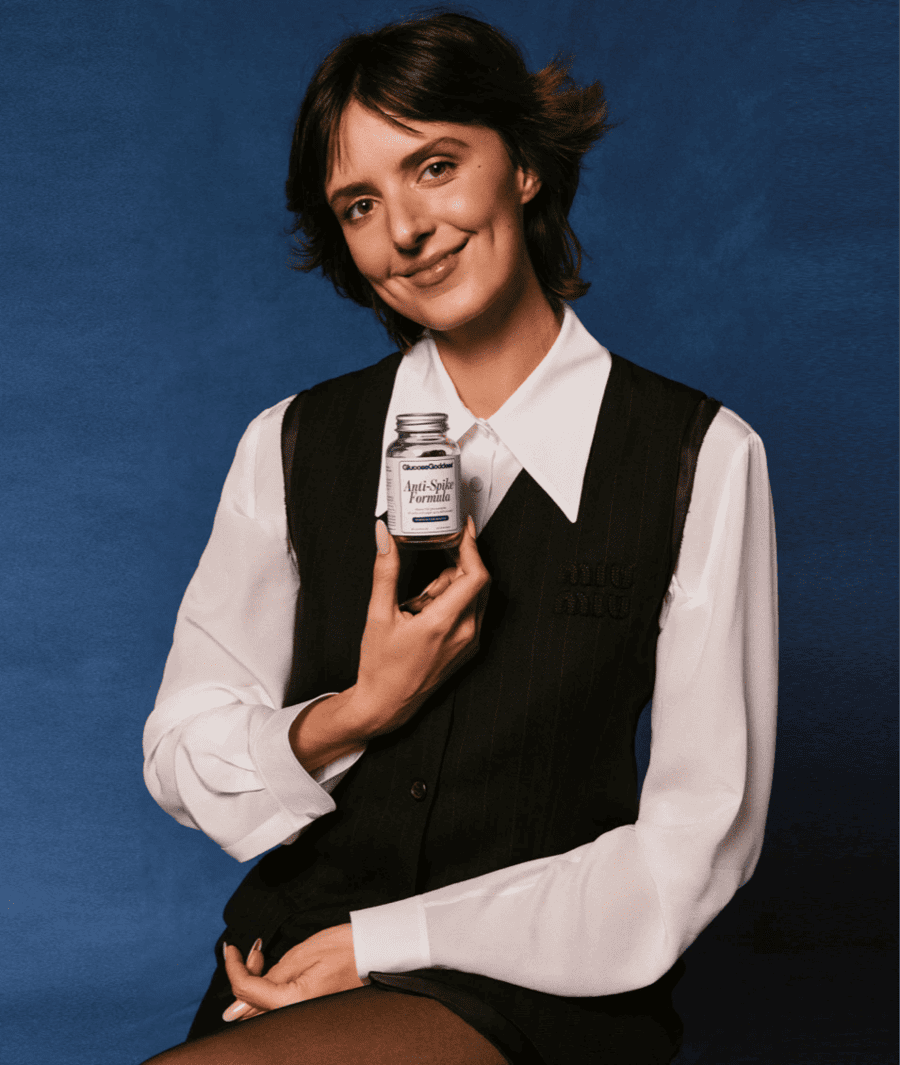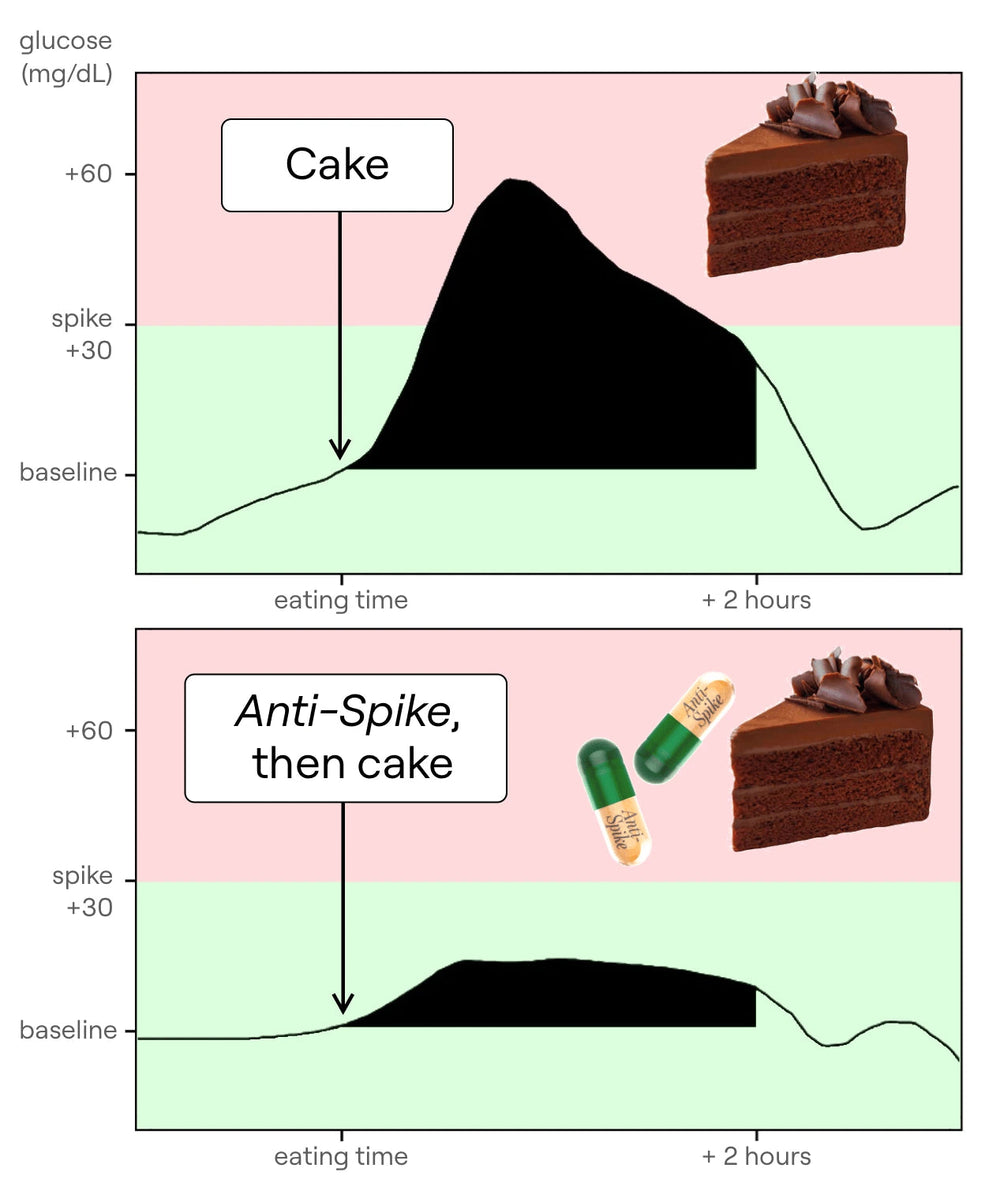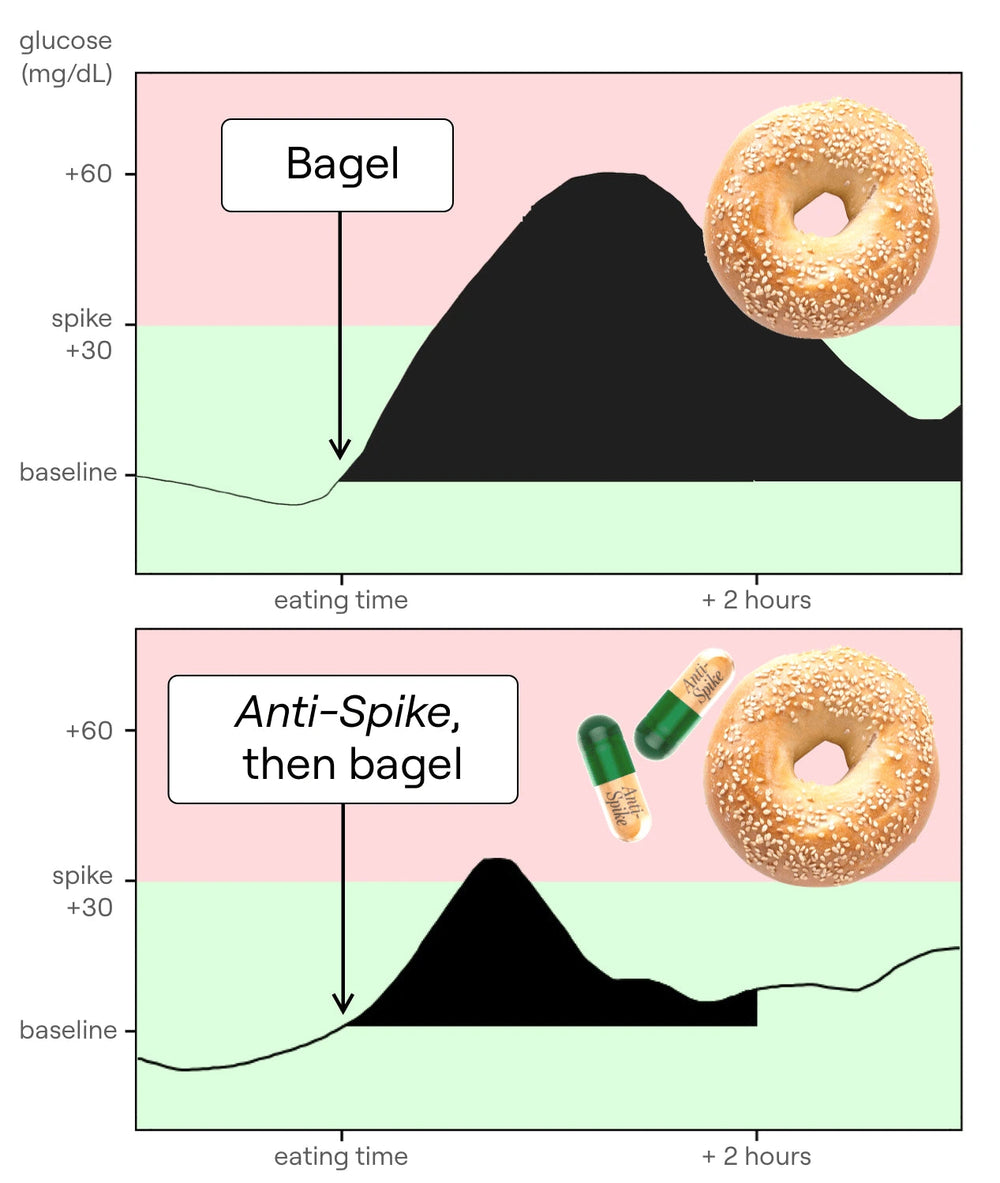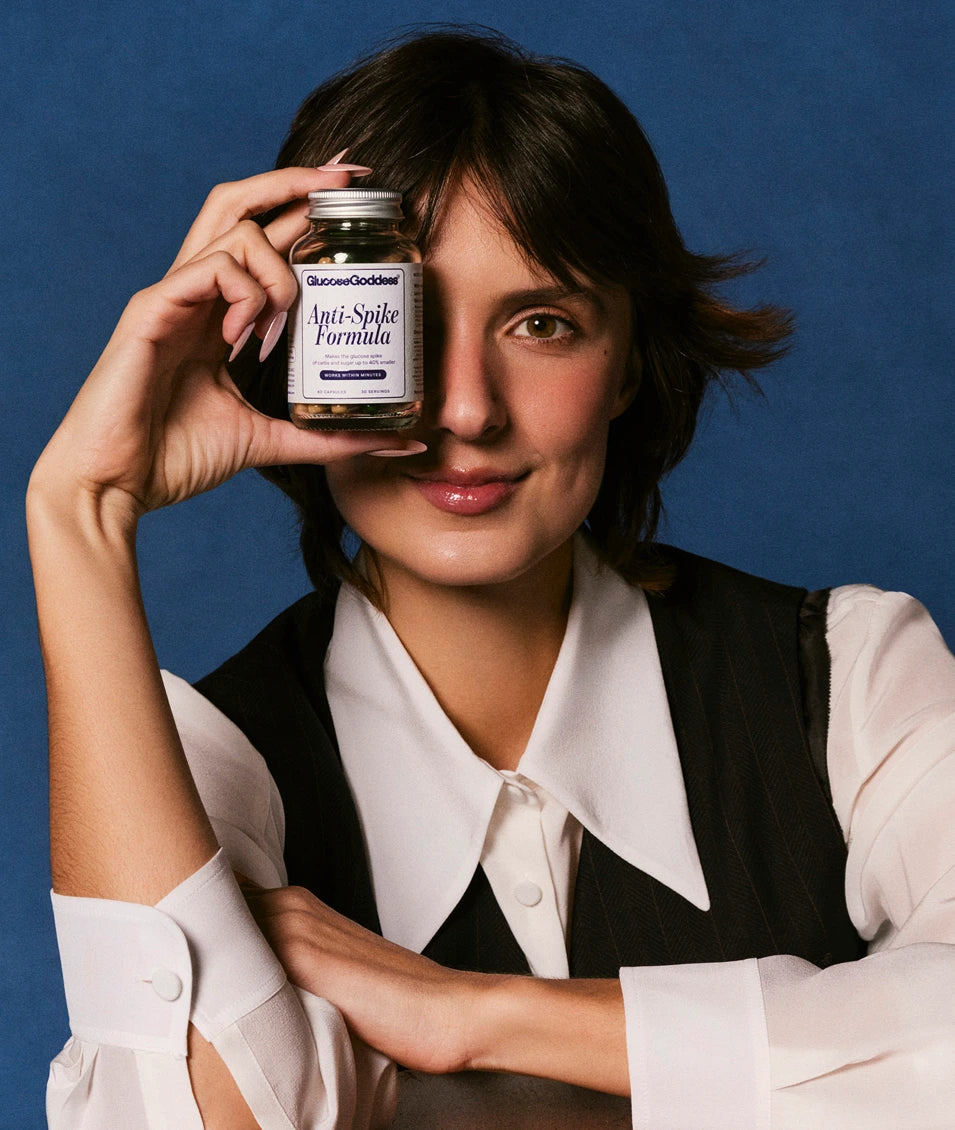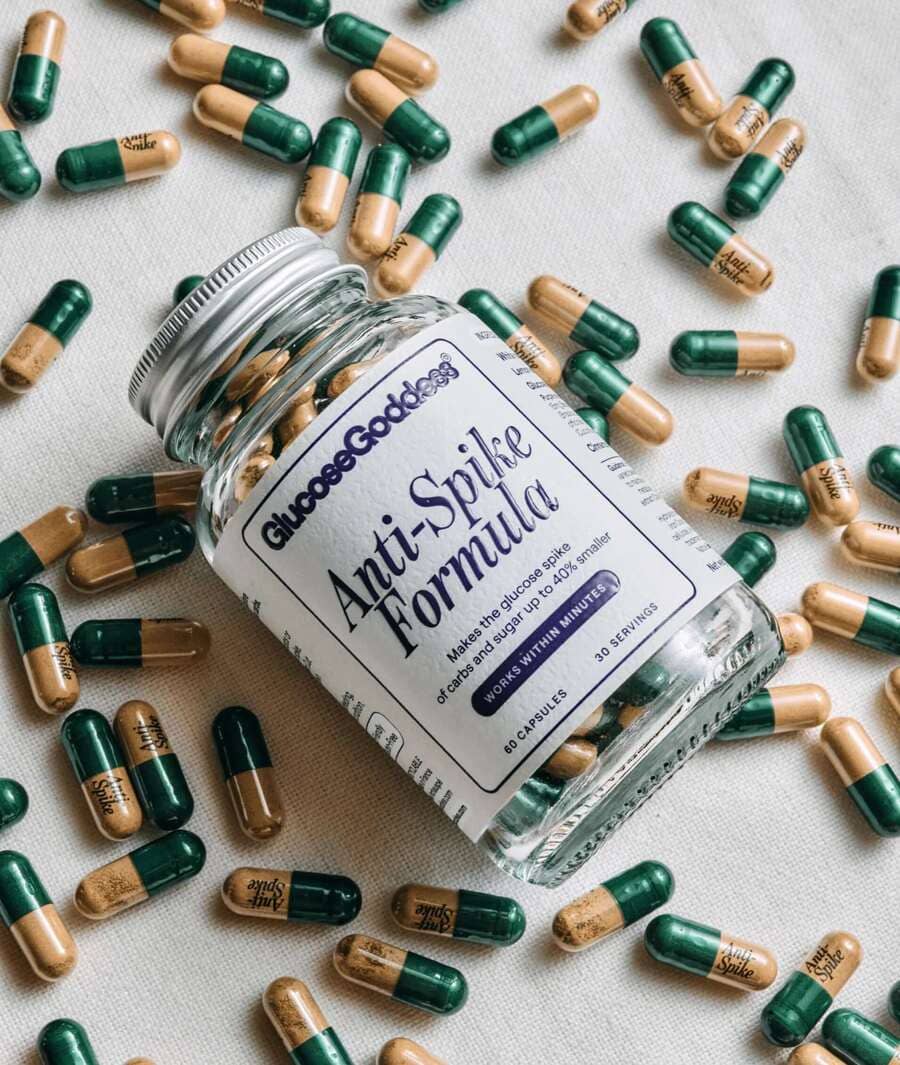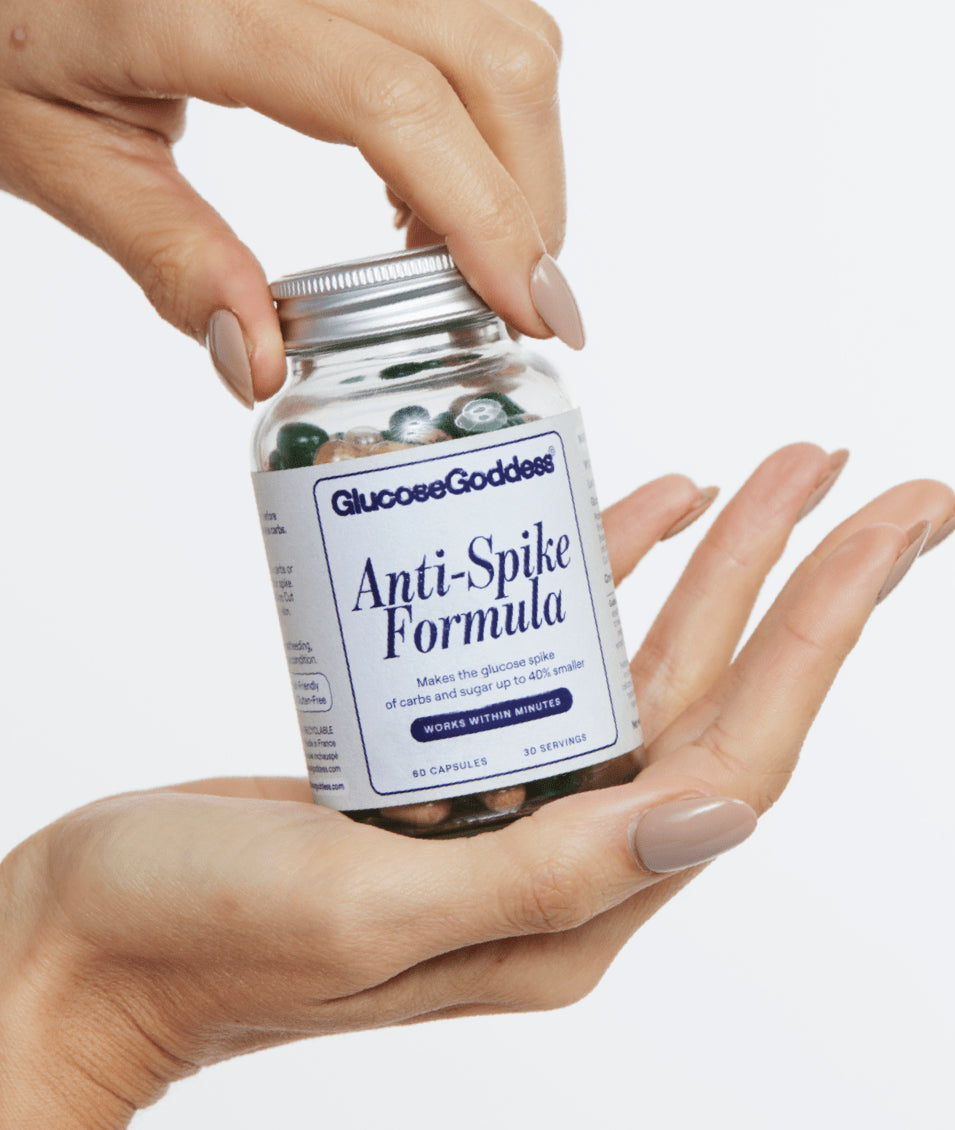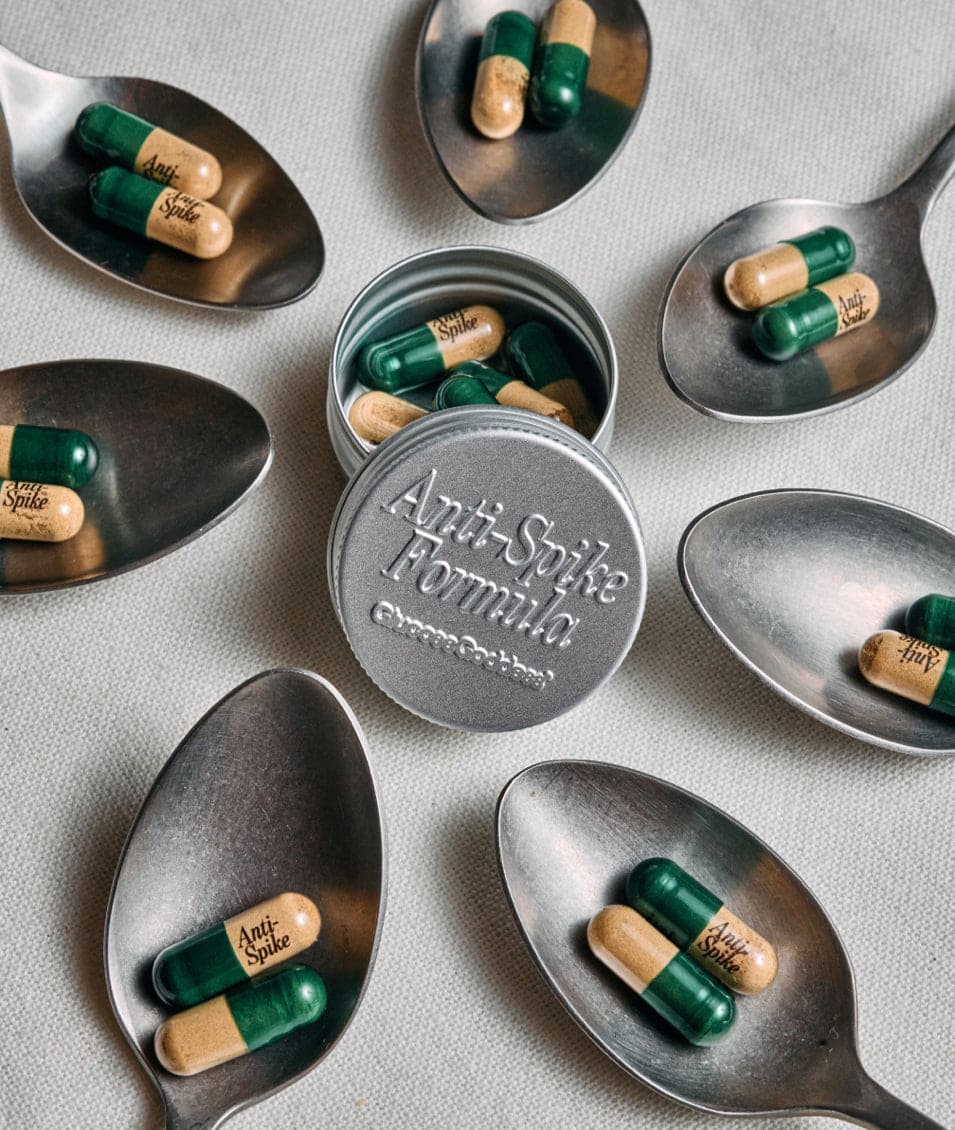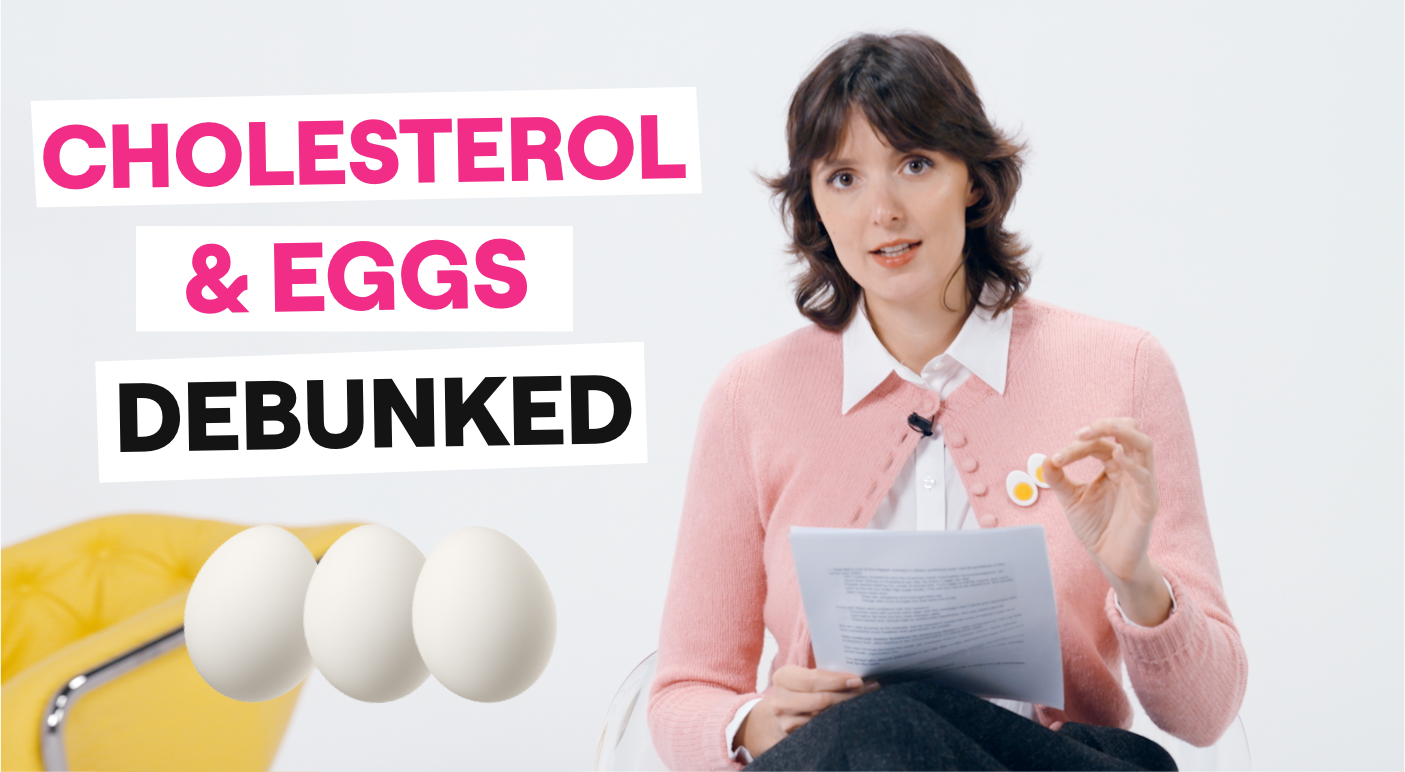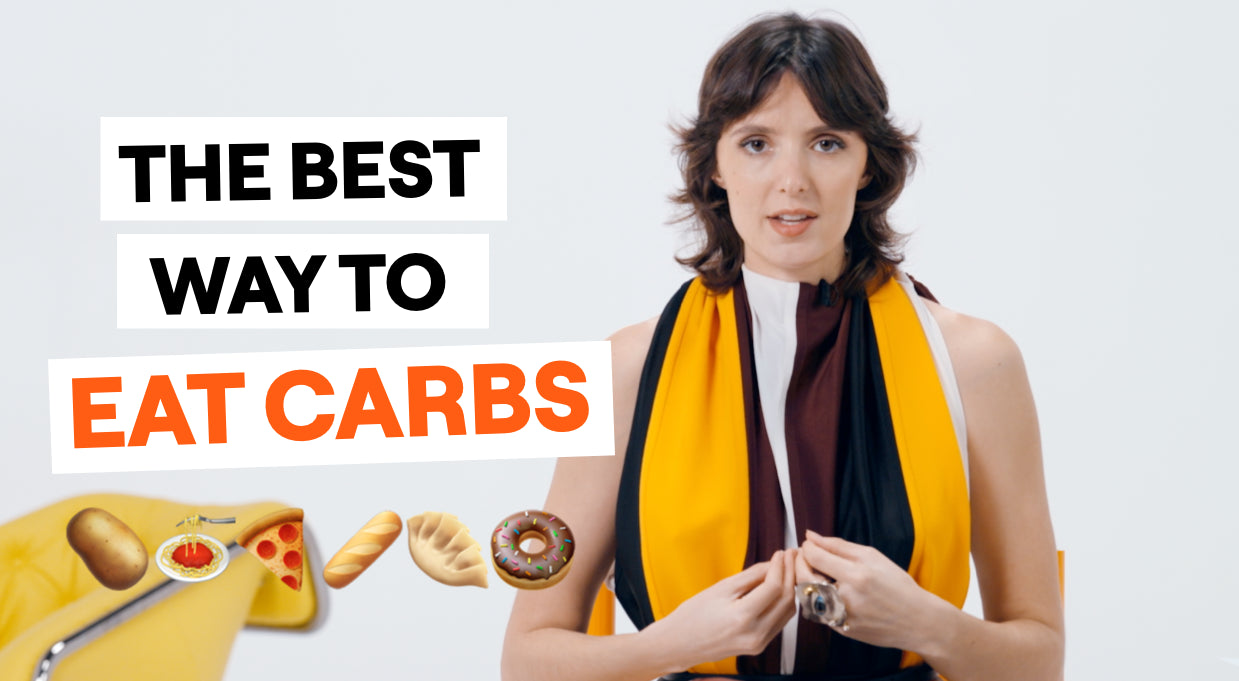SCIENCE EPISODE
You know I love chocolate. Like really love it. But is it actually good for us… or are we just hooked on the taste and the dopamine hit?
I’m breaking down the science behind chocolate: how it affects our glucose, our heart, our mood, and whether it belongs in the health food aisle or the dessert shelf.
What even is chocolate?
Chocolate comes from the fruit of the cacao tree, which contains cacao beans. These beans are fermented, roasted, and ground to become cacao powder.
This paste contains two key components:
- Cacao solids (where all the antioxidants and healthy compounds live)
- Cacao butter (the natural fat from the bean)
If you take 100% of that paste and press it into a bar, you get 100% dark chocolate. It’s super bitter, and not many people like it.
So what do chocolate makers do? They dilute the cacao with sugar, milk, and other ingredients to make it tastier.
- 75% chocolate = 75% cacao + 25% sugar/milk/vanilla/etc.
- Milk chocolate = often around 50% cacao or less
- White chocolate = no cacao solids at all; just cacao butter + sugar + milk
The lower the cacao %, the fewer the flavonoids and antioxidants, and the higher the sugar content. Think of it like this: cacao is the tomato, and chocolate is the ketchup. One is a whole food, the other is mostly added stuff.
💡 Did you know?
People eat on average around 1kg (2 lb) of chocolate per year. That's around 10 bars of chocolate (which if you're me, doesn't sound like a lot!).
Is chocolate good for the heart?
Let's look at what the latest science says about chocolate and heart health.
What are flavonoids in chocolate?
Flavonoids are antioxidants, which means they help your body fight off free radicals.
Free radicals are unstable molecules that can damage your cells, your DNA, and contribute to aging, inflammation, and chronic disease. Think of flavonoids like little cellular bodyguards: they go around neutralizing those free radicals and keeping things calm.
Cacao beans are actually one of the richest sources of flavonoids. In fact, 100% dark chocolate has 5x more antioxidants per gram than blueberries. Pretty impressive!
But the more sugar and milk you add, the more those benefits get diluted.
What does the science actually say?
There’s a big review study (read study) that looked at all the clinical trials testing whether dark chocolate (specifically 75%) improves heart health.
They found a small reduction in triglycerides (a marker for heart disease risk). But... that was the only consistent benefit found. No impact on blood pressure, cholesterol, blood sugar, acne or body weight.
So while there’s one small win (a reduction in triglycerides) the overall picture is not exactly miracle food territory.
Should you eat chocolate for your heart?
If you love dark chocolate, great! Choosing higher % cacao (like 85% or more) means you’re getting more flavonoids and less sugar.
But if you’re eating milk chocolate, the sugar content outweighs any antioxidant benefit.
Why does chocolate make us feel good?
We all know chocolate doesn’t just taste amazing, it feels amazing. It helps us focus, lifts our mood, and turns a bad day around. But what’s happening in our brain when we eat it?
Here’s what the science says (read study):
1. Sugar = dopamine
Most chocolate contains sugar, and sugar releases dopamine, the brain’s pleasure molecule.
This is the same feel-good chemical triggered by things like hugs, music, sex, and winning. So part of that chocolate high is simply a sugar high. But that dopamine hit from the sugar can be from any sweet food.
2. Cacao = subtle brain boosters
Cacao itself (especially in dark chocolate) contains compounds that may gently support mood and focus:
- Tyrosine: an amino acid that helps your brain make dopamine
- Endorphins: natural feel-good chemicals linked to calm, steady moods
- Theobromine: a mild stimulant similar to caffeine, which may explain the alert, focused feeling chocolate gives some people
Together, these create a gentle mental lift, but nothing dramatic.
Researchers have found some exciting compounds in chocolate, like Anandamide (linked to relaxation) and PEA (similar to the brain chemistry of falling in love).
But both are quickly broken down in the body and don’t reach the brain in meaningful amounts. So while they sound exciting, they’re probably not why we love chocolate so much.
Chocolate doesn’t have one magical brain-boosting compound, it’s more of a perfect storm: a bit of sugar-fueled dopamine, a hint of stimulation, a touch of mood support, and of course an amazing taste.
It’s pleasure, not medicine. And that’s okay ❤️
FREE RESOURCE
The Glucose Goddess Hacks
Instantly download the hacks as a 1-page printable PDF.
How I manage chocolate cravings (and glucose spikes)
As much as I love chocolate, I also know how sugar can impact my glucose levels, energy, and cravings. My go-to support lately? Anti-Spike.
It’s a formula I take daily that helps reduce my glucose spikes and keeps me feeling stable, especially after a sweet treat. Fewer cravings, more consistent energy, and way less bloating.
If you’re curious, you can check out the science and read thousands of stories.
Anti-Spike Formula
The scientific studies mentioned in this episode
Nehlig A. “The neuroprotective effects of cocoa flavanol and its influence on cognitive performance.” British journal of clinical pharmacology 75, no. 3 (2013): 716-27. https://pmc.ncbi.nlm.nih.gov/articles/PMC3575938/
Tan, T Y C et al., “The Health Effects of Chocolate and Cocoa: A Systematic Review.” Nutrients 13, no. 9 (2012): 2909. https://pubmed.ncbi.nlm.nih.gov/34578786/

